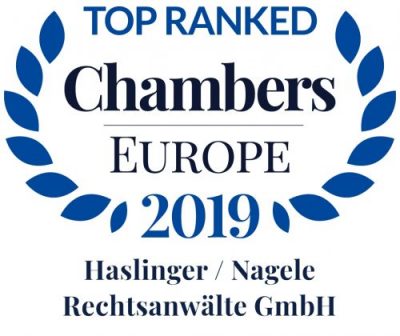Whistleblowing reporting systems
We help with implementation and processing!
Last year, almost 40,000 startups were founded in Austria. When starting a business, however, there are not only countless financial, tax and organizational issues to consider, but also numerous legal aspects to take into account.
In an interview with DIE MACHER, Julia Goth spoke about the benefits of digitalization in the startup process, the risks and stumbling blocks during establishment, the changing requirements for founders and much more.
Julia Goth: This question isn’t easy to answer because startup founders often approach us in entirely different situations. We also try to be present in the pre-founding phase, e.g. at the JKU Founders Week or at various courses at Universities of Applied Sciences, where we introduce students to the basics of corporate and financing law and also answer questions about “startup ideas” (e.g. How does an idea become a company? When is a limited liability company (GmbH) advisable? What are the costs?).
On the one hand, there are founders who seek not only legal advice, but also a “one-stop-shop package”. This means that we do not solely offer legal advice on startup foundation and its implementation, but also on, for example, financing options, trademark and public law matters as well as on labor law issues and, if necessary, we also establish contact with tax advisors. Especially in the case of technical / digital developments that are to be marketed, many trademark and data protection law issues arise.
On the other hand, the digitalization of corporate law has made some hurdles for founders a lot easier (e.g., founding a 1-person limited liability company digitally). However, this also carries the risk that founders may initially do everything “on their own” and possibly overlook important legal aspects. In particular, many legal pitfalls can occur when formulating general terms and conditions (AGB). So, there are also founders who have already set up their company and now want to take the next “big step”. This might involve expanding internationally or bringing in an investor. In such cases, various (legal) questions often arise, for which we then provide support.
Startup centers and incubators offer substantial support, particularly in the pre-startup and early startup stages. The advantage of these advisory centers is that they not only provide (also in cooperation with lawyers) legal advice (in the sense of basic consulting), but also talk to the founders even before they start their business about whether they have an “entrepreneurial mindset” or help them find the right business idea. At the same time, such advisory centers are well versed in evaluating financing options or finding funding. We, as a law firm, can also offer discounted support through partnerships with various startup networks.
In return, as a law firm, we have the advantage of being able to cover all legal matters in-house: be it corporate, labor, trademark or public law. This comprehensive expertise in many different legal areas is also a clear advantage of a large law firm over smaller law firms and solo practitioners. Based on our experience, we also know many pitfalls from similar causes, also in detail and tailored to the respective individual case. Furthermore, it’s important to consider that a company will continue to be confronted with legal issues even after its establishment: If we advise a company from its foundation onwards, we are not only familiar with the contracts or business relationships that have already been concluded, but also with the aspirations, ideas and goals of the clients, and can therefore better adapt to them and adjust the legal advice accordingly.
Legal problems arise in a startup just as they do in an established company; however, the advice can still be different. For startups, this is often the “first important transaction”; the founders are legally inexperienced, so it is important to meet them exactly at their level of knowledge and inform them about all the risks (e.g. How much power may an investor have?).
The risks when starting a business are manifold. However, there are two points that should be given careful consideration:
On the one hand, you should pay attention to who you work with. Starting a business with a person just because you have been friends for a long time can backfire. Hence, you should be able to assess a person’s skills and strengths and weigh whether they are suitable for working together. And even with the best of friendships, the company culture should be documented right from the start and provisions for handling disputes should be in place.
On the other hand, even if the budget is low at the beginning, at least a financial or tax expert should be brought on board. They can identify financial imbalances early on and, if necessary, prevent the ship from sinking. The same applies to legal matters; important contracts should not be concluded without prior consultation, and when selling products, it is essential to address trademark or competition law issues.
There is no such thing as a “checklist” that fits every single case. Every company is different; just like the needs and aspirations of the founders are always very different. That’s why it’s important to me not to advise startups according to a certain “scheme”. And this is precisely the crucial point: a founder should not run their company the way others do “just because it works for them”. Each company is to be viewed as an individual and has to be managed as such. This applies to financial, legal as well as organizational matters. Aspects that should be carefully considered (also with the help of appropriate advisors) are liability (how can personal liability be limited?), basics of tax law and accounting. How do I want to appear on the market? What is my service? Which clientele do I address? How should the work be divided between the co-partners and how should the profit be distributed? Should there be additional payment obligations?
“Each company is to be viewed as an individual and has to be managed as such“
Julia Goth
However, it should not be overlooked from the very beginning that as a founder, one cannot only focus on the “core business”. I recommend, especially inexperienced founders, to educate themselves about their responsibilities as entrepreneurs and managing directors or to seek advice in order to develop an awareness of the potential issues and avoid liability problems in the early stages.
Is the effort rather under- or overestimated?
I think the effort isn’t the problem at all. What is often underestimated is that, as an entrepreneur, especially in the early stages, one lives and breathes the business sometimes 24/7. The pressure not to disappear from the market immediately is enormous, particularly at the beginning. This also means that one’s personal life can suffer during this phase. It’s also a matter of personal preference whether one prefers to be an employee or take matters into their own hands. And then, of course, it should always be noted that it will take a certain amount of time before the work bears fruit.
I believe that there is no one “classic” mistake. When a startup fails, it usually has different reasons that depend on the specific company. A mistake made by Startup A does not automatically mean that this will also be a mistake for Startup B.
Yet there are some points that may be overlooked at the beginning. For example, many think that the GmbH (limited liability company) is the “best” legal form “because you cannot be liable with your private assets”. However, the costs for founding a GmbH are higher than for a partnership (Personengesellschaft). Here, the decisive factor is how the company is structured, what financial risks exist, etc. (e.g., only own contributions, low fixed costs, no expected warranty claims).
Furthermore, from my experience, I witness that founders have an idea that they want to implement as quickly as possible, focusing entirely on the core business. However, they initially tend to overlook that a company also needs to be “managed” or “led” and that this also includes, for example, accounting and various organizational duties.
Especially among young founders, we are witnessing a paradigm shift in terms of the requirements for corporate culture. Young entrepreneurs have understood that the requirement for a job is no longer just “good salary”. There is also a growing desire on part of startup founders to give their own employees a stake in the company or to expand the labor law framework in the interests of employees, to enable flexible working hours, etc.
Especially in companies with two partners each holding a 50% stake, it can be challenging. In the case of shareholder resolutions, this can lead to a stalemate, which – in the worst case – can result in a dispute. In general, even if the relationship is currently good, you should still make arrangements for potential disputes or regulate the fundamental organization of the company to avoid disputes.
Always think about what your own requirements are for your own company and what you want. Especially in financial and legal matters, you should never follow a fixed “scheme” and copy the ideas of others.
If possible, avoid borrowing money from friends and relatives to start a business. Money can strain relationships.
And most importantly, do not lose confidence and don’t listen to what others think of the idea. What matters most is that you are convinced of it yourself!
Julia Goth, an expert in legal advice for startups, will be happy to answer any further questions you may have on this topic.
An excerpt of this interview appeared as part of the article “The fear of failure” in the fall 2023 issue of DIE MACHER and online here.
This article is for general information only and does not replace legal advice. Haslinger / Nagele Rechtsanwälte GmbH assumes no liability for the content and correctness of this article.
16. October 2023






